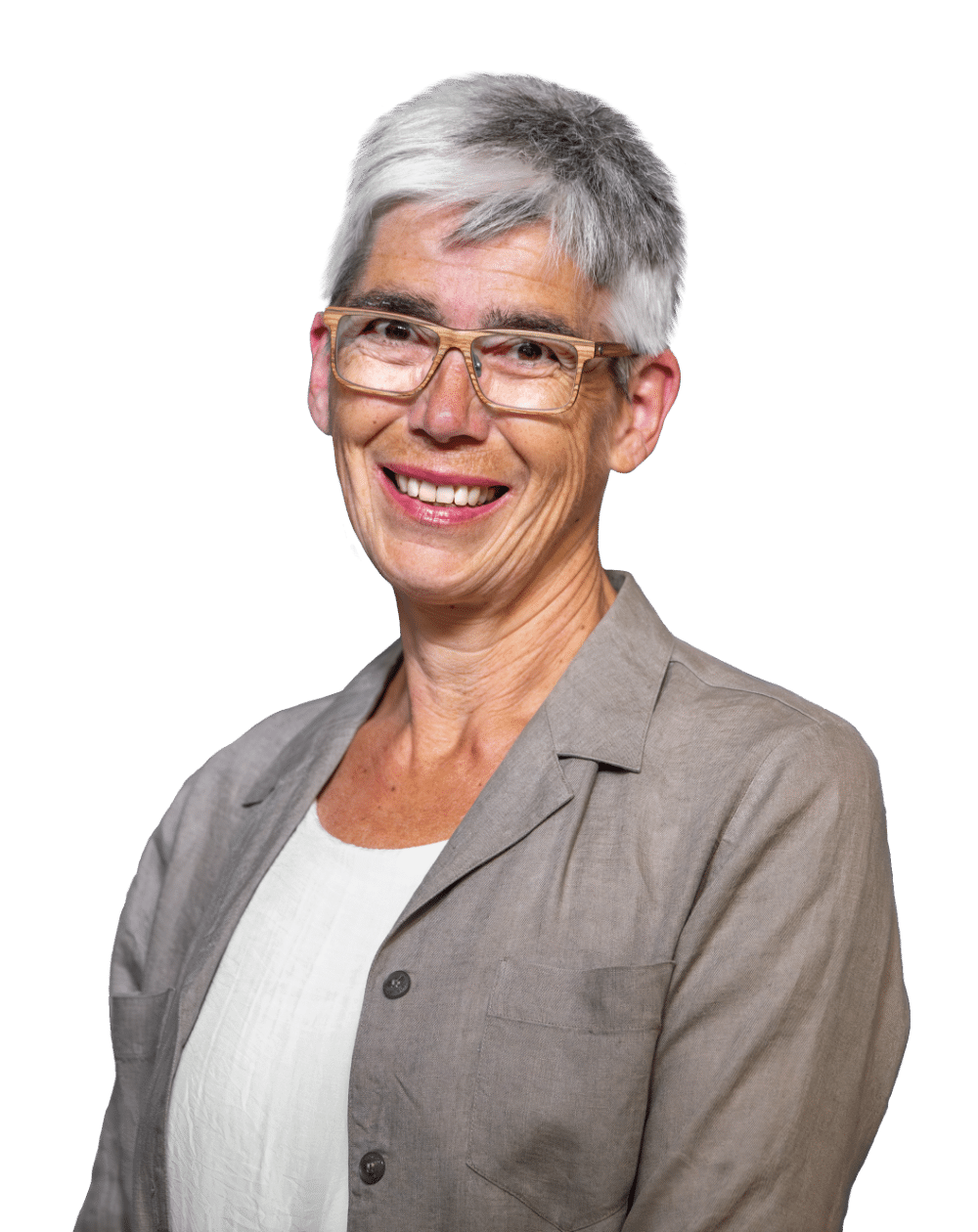Personal data
I was born in 1967 in Gießen (Hessen). After studying in Marburg from 1986 to 1990, I moved to the beautiful Palatinate, where I have lived since. I am a pharmacist by profession (licensed pharmacist). In 1991 I started my own business with my then husband and a friend: we founded a laboratory for indoor pollutants (wood preservatives, solvents, formaldehyde) and ecotoxicology. In the beginning, I worked in parallel in the public pharmacy to secure family income, later I took on full-time quality management and controlling in the laboratory. Our field of activity shifted more and more towards chemical testing and evaluation according to EU law – therefore I know the legal basis and requirements from practice. After 20 years of management, I took new paths in 2012, sold my company shares and became more politically active. Until I was elected to the executive board of Bündnis 90 / Die Grünen Rheinland-Pfalz in May 2017, I continued to work in various laboratories and in the hospital in quality management.
I have two grown children that I enjoy a lot.
Political Activity
- Member of Bündnis 90/Die Grünen 1987 – 2001 and since 2009
- Member of the Marburg City Parliament from 1988 to 1990
- Member of the board of the green party in Neustadt / Weinstr. since 2012
- Member of the national working group on ecology, energy and waste management since 2011, deputy. spokesperson 2012 – 2017
- Member of the Federal Working Group on Energy since 2011, delegated since 2013, spokesperson 2014 – 2018
- Member of the Federal Ecological Working Group since 2014, delegated since 2016
- Direct candidate for the 2013 federal election in the Neustadt-Speyer constituency
- Deputy delegate to the country council since 2014
- Member of the coalition negotiation group 2016
- Chair of the Rhineland-Palatinate State Association of Bündnis 90/Die Grünen 05/2017-11/2019
- Member of the party council since 01/2018-11/2019
- Member of the European Parliament as part of the Greens/EFA group since 07/2019
My topics
…more about me
The political awakening in my life came a little late: when I was 18, a reactor called Chernobyl 4 blew up in the distant Ukraine (then still the Soviet Union). The helplessness but also the audacity with which the then federal government acted made me stunned and angry at the same time, and I started to get involved. The topics of environment and energy have been with me ever since.
As a scientist, it has always been clear to me that an energy supply that is based on finite resources is also a finite matter. But it wasn’t until the late 1980s that I realized that mankind was headed for a CO2 problem – and with increasing speed.
The climate crisis presents us with enormous challenges. But that shouldn’t mean that we stick our heads into the sand! Because – that’s the good news – the technical solutions have long been there. Of course, those who make money with fossil-atomic energy supplies, with gasoline and diesel engines, with oil and gas heating want to hold onto their unsustainable business models as long as possible. That is why we have to fight even more so that the world of our children and grandchildren (or, depending on the year of birth, our own) is not burned up. We need a climate protection program that also deserves the name: out of the fossils, into the renewables, down with the waste of energy! To do this, we need to accelerate the energy turnaround, bring modernization of buildings up to speed, finally start the mobility turnaround and make agriculture and industry fit for the future. I want Germany and the EU to finally take their international legal obligations from the Paris climate agreement seriously and take appropriate measures.
The sixth major extinction wave is sweeping the planet more quietly than the climate crisis, which is already leaving millions homeless today and causing immense damage here as well. It is no longer just about insects or herbs; some of the ecosystems are “in free fall”. Without intact ecosystems, no clean air, no clean water, no fertile soil, no pollination of many of our crops. No wood, no fish, no textile fibers, no medicines. The impoverishment of genetic diversity by industrialized agriculture is putting our food supply at risk.
So-called “novel entities”, artificial substances and organisms, threaten both biodiversity and the habitats as a whole. Who doesn’t know the terrible photos of starved seabirds, their stomachs full of plastic? DDT is found in Arctic ice and perfluorinated surfactants in drinking water wells; many medicines rush through the sewage treatment plants unchanged and make fish sterile.
FURTHER ENGAGEMENT / MEMBERSHIPS
- Citizens’ Energy Cooperative in Neustadt eG
- BUND Rheinland-Pfalz e.V. (Energy Working Group)
- Support association memorials in Neustadt / Weinstraße e.V.
- Forum ecological-social market economy e.V.
- Greenpeace e.V.
- Heinrich Böll Foundation Rhineland-Palatinate
- Nursing Association Haardt e.V.
- Cultural association Wespennest e.V.
- Mellifera e.V.
- Metropol Solar Rhein-Neckar e.V.
- Neighborhood shop Haardt e.V.
- Neustadter Stiftskantorei e.V.
- POLLICHIA Association for Natural Research and Conservation e.V.
- SFV Solar Energy Promotion Association e. V.
- Solidarity Agriculture Akazienhof Neustadt e.V.
- UN Refugee Aid e.V.
- urgewald e.V.
- Association of Democratic Pharmacists e.V.
- Association for a national CO2 tax e.V.
What do I stand for:
Saving nature, a stable climate, a toxic-free environment.
Write me

Write me a message, feedback or comment.
Videos
Wasser ist ein Menschenrecht! Globale & lokale Wasserkrise erklärt | Jutta Paulus, MdEP
💦Millionen für ALDI - Nichts für die Bürger!

